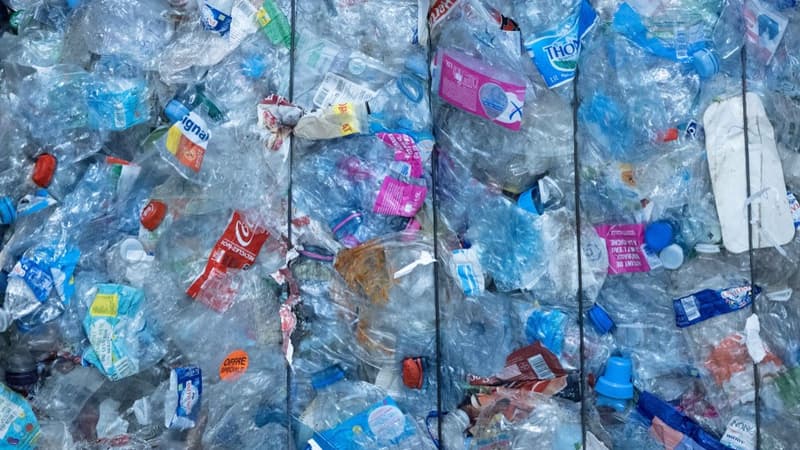What should be done to be more effective? Buy a slightly more expensive bottle of water and then return it to the supermarket, empty, in exchange for a few cents returned by an automaton? Or improve the classification of plastic waste, at home and on the street, to increase recycling volumes? The Government relaunched this Monday a debate on the possible implementation of deposits for plastic bottles in France, an initiative planned by the Government during the vote on the anti-waste law for a circular economy (Agec) in 2020, but aborted in the face of strong opposition from local communities.
Food industry, bottlers, supermarkets, associations of elected officials, consumers and NGOs, some 70 interested parties are invited starting Monday by the Secretary of State for Ecology, Bérangère Couillard, who intends to make a decision on the subject in June . In countries where it exists, such as Germany, the deposit – that is, the reimbursement of the container to consumers who return their empty bottles to a collection point – works well and allows recycling rates to be increased.
european goals
The European targets for the collection rate of plastic bottles are 77% in 2025 and 90% in 2029. However, France’s performance is limited below 60% because plastic packaging is not collected well enough, or even not separate at all in most street bins. or workplaces. “Thanks to the dialogue that will be established over several months, we will be able to make the decision that best suits our main objectives: achieve a better bottle collection rate, bet on 100% recycled plastic, develop reuse and fight against wild deposits “, declared Bérangère Couillard last week, inviting the consultation.
In the government it is accepted that the imposition of a deposit on plastic bottles, a provision withdrawn in extremis during the vote on the Agec law due to pressure from the communities, would have had the effect of reducing the flow of plastic in the yellow containers of household waste sorted for recycling, and to reduce the income of sorting centers run by municipalities. Negotiated between 600 and 700 euros per ton, PET plastic for recycling has become a blessing for them. And sorting centers have invested heavily in expensive machines to improve sorting, material by material and package by package.
This has finally made it possible, after more than a decade of preparations, to simplify the sorting instructions for almost all French people from January 1, opening the hope of finally increasing recycling volumes. From now on, all containers, whatever their type, must be thrown into the yellow containers: all plastics (PET, polystyrene, PVC, etc.), aluminum or aerosol cans, steel cans, and of course paper and boxes.
“Wild Deposits”
But the automatons to collect bottles are multiplying throughout France, we recognize in the Ministry, a kind of “wild warehouses (…) that will have to be organized”. Because everyone has an interest in recovering this plastic: plastic manufacturers must include a minimum percentage of recycled plastic in their products to comply with their European climate obligations; communities earn an income from it. In some cities, these “wild” deposits have “led parallel networks to loot yellow containers to supply the automatons,” they point out from the same source.
The deposit has advantages. In countries where it exists, it significantly increases the rate of plastic collection, professionals argue. It’s also of interest to distributors because the vending machines attract certain customers who had defected from supermarkets since the Covid period, one observer notes. On the other hand, “the deposit monetizes a sorting gesture, which runs the risk of being completely devalued,” criticizes Nicolás Garnier, from the Amorce association, which brings together communities that organize waste collection and sorting. “There is a risk of reducing the mobilization of the French to sort their waste at home.”
The deposit also supposes an additional expense in food for the reckless one who forgets to bring his empty bottles, since he will not recover the “deposit” paid for the purchase of his bottle.
Source: BFM TV


